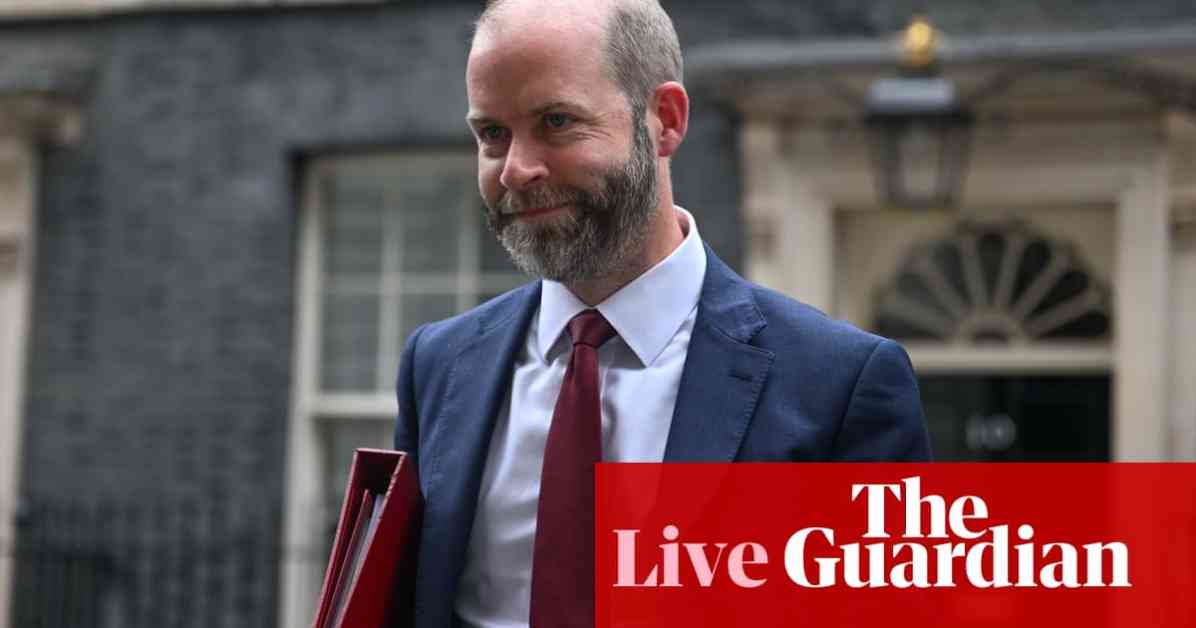Labour’s Winter Fuel Payment Cuts – Business Secretary Defends Government’s Decision
Today, the Labour party faces a challenging vote on means-testing the winter fuel payment, prompting a debate on the government’s decision-making process. Despite the pressure, it is crucial to maintain perspective on the situation, especially as the definition of a “rebel” in political terms continues to evolve. In the past, a rebel typically referred to an MP voting against their government, but in today’s landscape, the focus is on how many Labour MPs will intentionally abstain from the crucial vote.
Business Secretary Jonathan Reynolds has been at the forefront, defending the government’s stance on the issue. In a recent media appearance on Sky News, Reynolds emphasized that the government had “no choice” but to implement the changes. He explained that the challenges inherited from previous administrations necessitated immediate action, framing the decision as a response to budgetary constraints left behind by the Tories.
Reynolds’ statement of having “no choice” contrasts with Chancellor Rachel Reeves’ perspective, as outlined in a Daily Telegraph article. Reeves characterizes the move as the “right choice,” emphasizing the Labour government’s mandate for change and the need to establish a strong economic foundation. She acknowledges the difficult decisions involved, such as reallocating funds from projects like road infrastructure and hospital programs to prioritize essential services like winter fuel payments for those most in need.
As the debate on winter fuel payments unfolds in the Commons, the political landscape remains dynamic. Meanwhile, Keir Starmer’s address at the TUC conference and other key events throughout the day add to the flurry of activities in the political sphere. The agenda includes parliamentary sessions, briefings, and significant announcements, underscoring the intensity of the day’s proceedings.
Subheadings:
1. Andy Burnham’s Perspective on Winter Fuel Payment Reform
In an interview with the Today programme, Andy Burnham, the Labour mayor of Greater Manchester, acknowledged the need for reform in the winter fuel payment system. He proposed a more generous approach to means-testing, advocating for adjustments to the threshold and tapering mechanisms to better support pensioners on the brink of financial vulnerability.
Despite Burnham’s suggestions, the government has maintained its stance on the means-testing framework, prompting concerns about the potential impact on pensioners’ access to essential benefits. The debate surrounding the winter fuel payment cuts continues to evolve, with differing perspectives on how best to address the issue while ensuring adequate support for those in need.
2. Addressing Speculations on Bus Pass Restrictions for Pensioners
During a media interview, Business Secretary Jonathan Reynolds addressed speculations about potential restrictions on bus passes for pensioners. Refusing to provide a definitive guarantee, Reynolds emphasized the need to wait for budgetary decisions before confirming any changes to existing benefits.
The uncertainty surrounding bus pass entitlements has raised concerns among pensioners and advocacy groups, highlighting the importance of clarity and transparency in government policies. As discussions unfold, the implications of potential reforms on pensioners’ mobility and access to essential services remain a focal point of public debate.
3. Ensuring Support for Vulnerable Pensioners Amid Winter Fuel Payment Cuts
As the government faces scrutiny over the impact of winter fuel payment cuts on vulnerable pensioners, Business Secretary Jonathan Reynolds emphasized the administration’s commitment to providing targeted support. Acknowledging the challenges faced by pensioners, Reynolds outlined measures aimed at safeguarding individuals from the adverse effects of reduced benefits.
Reynolds’ reassurances come amidst concerns about the potential consequences of the payment cuts, with critics highlighting the risk of pensioners facing hardships during the colder months. By emphasizing the government’s broader support mechanisms, including the warm homes discount and household support fund, Reynolds aims to alleviate fears and ensure adequate assistance for those most in need.
In conclusion, the ongoing debate surrounding winter fuel payment cuts underscores the complexities of balancing fiscal responsibility with social welfare priorities. As the government navigates these challenges, the focus remains on ensuring equitable support for pensioners while addressing budgetary constraints. The evolving political landscape demands thoughtful consideration and strategic decision-making to uphold the welfare of vulnerable individuals in society.












